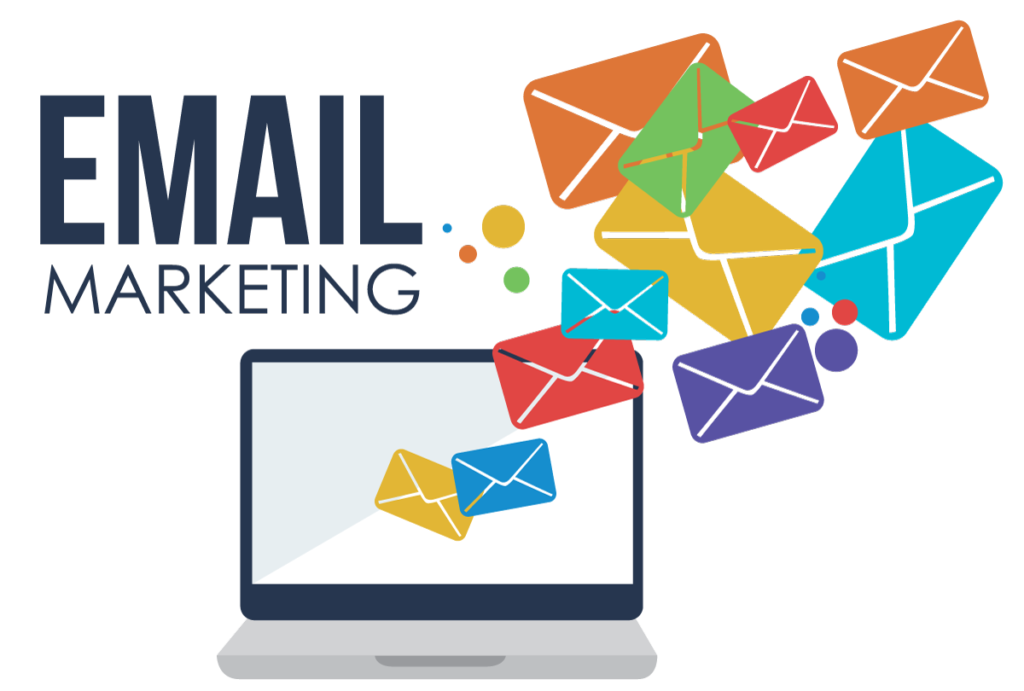EMAIL MARKETING SERVICES
Email marketing is a strategic approach used by businesses and organizations to reach a specific audience through email. It involves sending promotional messages to a group of recipients to build relationships, increase brand awareness, promote products or services, and drive sales.
Key Elements of Email Marketing:
Audience Segmentation: Successful email marketing starts with creating a segmented email list. This involves grouping subscribers based on various criteria such as demographics, purchase history, and engagement levels. Understanding the audience allows for crafting messages that cater to their specific needs and interests.
Personalization: Personalizing email content means more than just using the recipient’s name. It involves tailoring messages to the recipient’s preferences, behaviors, and past interactions with the brand. Personalized emails tend to engage recipients more effectively and achieve higher conversion rates.
Engaging Content: The effectiveness of an email campaign depends on the quality of its content. Emails should offer value, whether through informative articles, exclusive offers, or compelling storytelling. The content must be well-written, visually appealing, and optimized for both desktop and mobile devices.
Call to Action (CTA): A clear and compelling CTA is essential for guiding recipients toward the desired action, such as making a purchase, signing up for an event, or downloading a resource. Effective CTAs are direct, concise, and create a sense of urgency.
Automation and Drip Campaigns: Email marketing platforms offer automation features that enable businesses to set up drip campaigns—automated email series triggered by specific actions or time intervals. Automation helps maintain consistent communication and nurtures leads through the sales funnel.
Analytics and Reporting: Monitoring the performance of email campaigns is crucial for ongoing improvement. Key metrics include open rates, click-through rates, conversion rates, and unsubscribe rates. Analyzing these metrics helps marketers understand what works and optimize future campaigns.
Benefits of Email Marketing:
- Cost-Effective: Email marketing is highly cost-effective compared to traditional marketing channels, offering a high return on investment (ROI) with minimal expenses.
- Direct Communication: Email provides a direct line to the customer’s inbox, enabling personalized and immediate communication.
- Scalability: Email campaigns can be scaled to reach large audiences or tailored for small, specific groups.
- Measurable Results: Detailed analytics allow marketers to measure campaign success and make data-driven decisions.
- Enhanced Customer Engagement: Regular, targeted emails keep customers engaged with the brand, fostering loyalty and encouraging repeat business.
Best Practices:
- Obtain Consent: Ensure all email recipients have opted in to receive communications to comply with regulations and build trust.
- Segment Your List: Use segmentation to send more relevant content to different audience groups.
- Test and Optimize: Regularly A/B test different elements of your emails, such as subject lines, content, and CTAs, to determine what resonates best with your audience.
- Maintain Consistency: Send emails at regular intervals to keep your audience engaged without overwhelming them with too many messages.
- Ensure Mobile-Friendliness: Optimize email designs for mobile devices, as many users access emails on their smartphones.
In conclusion, email marketing remains a powerful tool in digital marketing, providing a direct, personalized, and cost-effective way to engage with customers and drive business growth. By following best practices and using analytics to refine strategies, businesses can maximize the effectiveness of their email marketing efforts.
